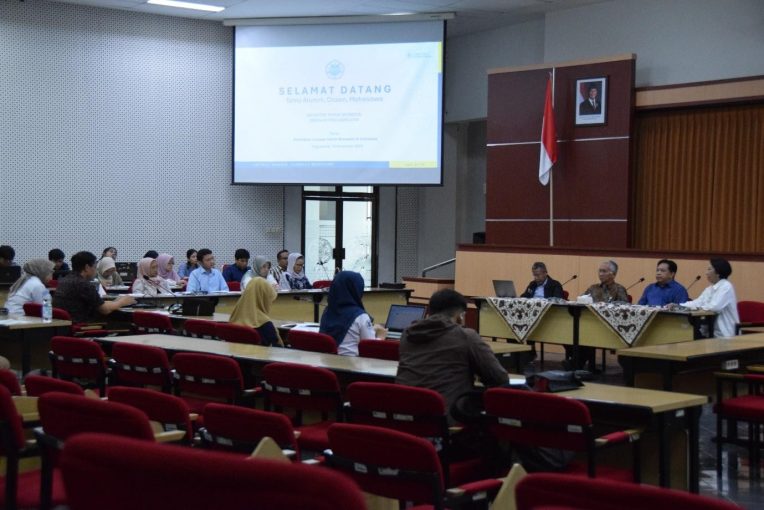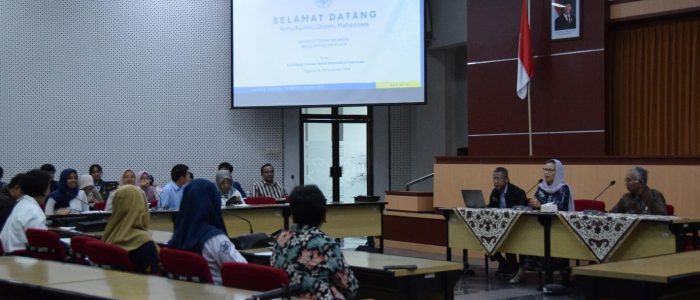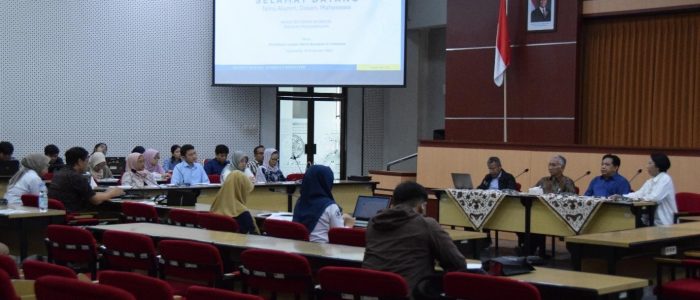
The Biomedical Engineering Master’s Program at the Graduate School of Gadjah Mada University (UGM), or commonly known as BME SPs UGM, held a meeting with alumni and industry stakeholders in an event titled Biomedical Engineering Gathering, which took place at the Auditorium on the 5th Floor of the SPs UGM Building on Monday, November 18th 2024.
The event, titled The Contribution of Biomedical Engineering Graduates for Indonesia, aimed to gather input from faculty, alumni, students, and industry professionals for the development of the 2025 curriculum. It was attended by key pioneers of the BME program, including Dr. Purnomo from the Faculty of Engineering, Prof. drg. Widowati Siswomihardjo, M.S., from the Faculty of Dentistry, and Prof. Ir. Alva Edy Tontowi, M.Sc., Ph.D., also from the Faculty of Engineering.
This meeting was considered important due to alumni’s crucial role in the development of the program’s curriculum. As stated by the Chief of the Biomedical Engineering Master’s Program, Ir. Rini Dharmastiti, M.Sc., Ph.D., “Alumni are a vital element for the development of the program, as well as for networking among fellow alumni,” she remarked.
In line with Ms. Rini’s statement, the Dean of the Graduate School of UGM, Prof. Ir. Siti Malkhamah, M.Sc., Ph.D., also emphasized that alumni are the backbone of the program. In her opening speech, Prof. Siti mentioned, “Alumni are one of the backbones expected to establish collaborations that benefit all parts, both students and the community.”
The Dean also expressed her hopes that the curriculum development could pave the way for progress in all aspects, whether for the institution, society, or students.
The Chair of the Biomedical Engineering Master’s Alumni Association, Joko Kuswanto, S.T., M. Biotech, shared his thoughts and hopes for the field of Biomedical Engineering and its graduates. Joko said, “We all, including our younger peers, can provide a clearer direction for the Biomedical Engineering profession.”
He also added, “Biomedical Engineering is a field with great opportunities; in the job market, the demand is actually very high, but in terms of nomenclature, it is still largely limited to ‘electromedicine’ in hospitals. As a result, many graduates are absorbed as educators or researchers in government institutions.”
Joko hopes that this meeting will become a moment to create a flexible curriculum that aligns with real-world needs, directs research according to industry requirements, and advocates with the government to include the appropriate nomenclature so that graduates can also be absorbed into hospitals.
Meanwhile, Aditya Imam Rizky, M.Sc., from PT. Interskala Group, mentioned that what is needed by the industry should be incorporated into the curriculum, so that all graduating students will possess the same skills that can be considered during screening processes.
Additionally, Prof. Widowati, affectionately known as Prof. Bundi, invited all students to join the heart ring research or INA Stent project, which has been ongoing since 2013.
Prof. Bundi shared, “Our task is to create a prototype heart ring; this is not an easy research project, it is an industrial teaching project. We invite students from the BME program who wish to join, without abandoning their own fields of expertise, as this is multidisciplinary research.”
This event is also in line with the implementation of SDGs (Sustainable Development Goals) — Goal 3 on Good Health and Well-Being, Goal 4 on Quality Education, Goal 9 on Industry, Innovation, and Infrastructure, and Goal 17 on Partnerships for the Goals.
Writer: Arni Wistriatun


